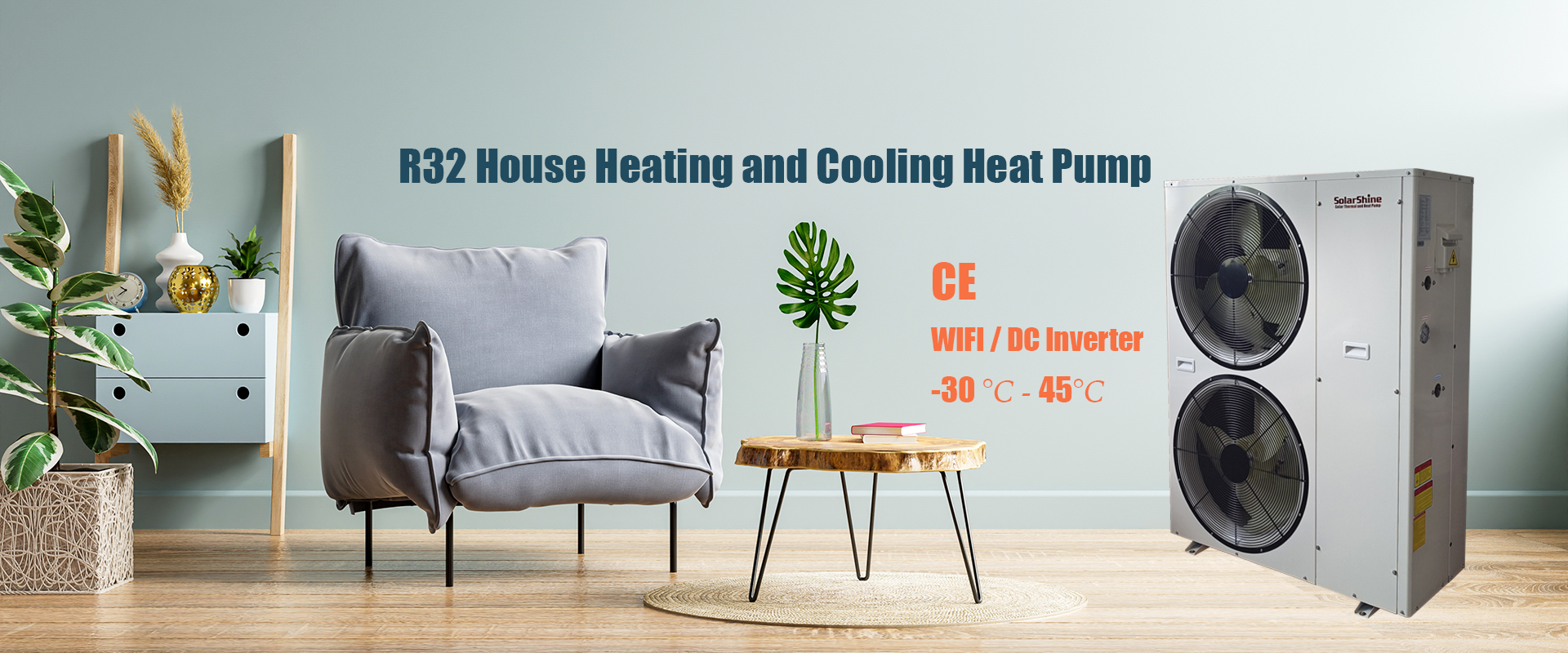Air Source Heat Pump Heater is a kind of equipment that uses air as heat source for heating, and its application principle is based on the heat pump principle in thermodynamics. The basic principle is to transfer heat between outdoors and indoors through circulating refrigerant, and transfer the low temperature heat from outdoors to indoors for heating.
The whole heat pump system transfers heat through the flow of refrigerant between the outdoor unit and the indoor unit. In the heating mode, the outdoor unit absorbs low-temperature heat in the air to make the refrigerant evaporate in the evaporator to form low-temperature low-pressure steam, then the steam is compressed and heated by a compressor to form high-temperature high-pressure steam, and then the high-temperature high-pressure steam is transmitted to the indoor unit. After the condensation of the condenser, the high-temperature heat is released, the air in the indoor heat exchanger is heated, and then the hot air is sent indoors through the fan. Because the heat source of the air source heat pump heater is the air in the environment, the heat source heat pump heater has little environmental pollution and low use cost. However, it should be noted that the efficiency of the air source heat pump heater will be affected in the extreme low temperature, and corresponding measures should be taken to ensure its normal operation.
Air source heat pumps have several advantages when it comes to heating homes:
Energy efficiency: Air source heat pumps are highly energy efficient and can provide a significant reduction in energy consumption compared to traditional heating systems. They can achieve a high coefficient of performance (COP) of 2.5-4.5, which means that for every unit of electricity they consume, they can provide 2.5-4.5 units of heat.
Cost-effective: Over the long term, air source heat pumps can be more cost-effective than traditional heating systems, especially if the cost of electricity is lower than that of other heating fuels. Additionally, they require less maintenance than traditional heating systems, reducing long-term costs.
Environmental friendliness: Air source heat pumps do not emit any greenhouse gases, which makes them an environmentally friendly heating option. They can also help reduce a household’s carbon footprint, especially if the electricity they consume is from renewable sources.
Versatility: Air source heat pumps can be used for both heating and cooling, providing a year-round solution to temperature control in a home. They are also suitable for a range of property types, including new builds, retrofits, and older properties.
Quiet operation: Air source heat pumps operate quietly and can be installed without any significant disruption to a home’s existing structure. This makes them ideal for use in residential areas.
Overall, air source heat pumps offer an energy-efficient, cost-effective, and environmentally friendly solution for heating homes. They are also versatile, suitable for a range of property types and operate quietly, making them an excellent choice for homeowners looking for a reliable and efficient heating solution.
Post time: Mar-15-2023


